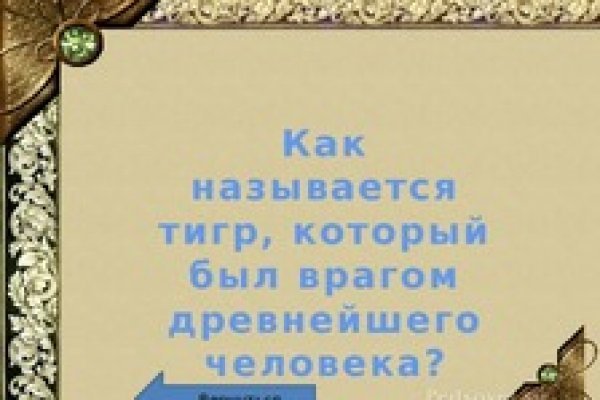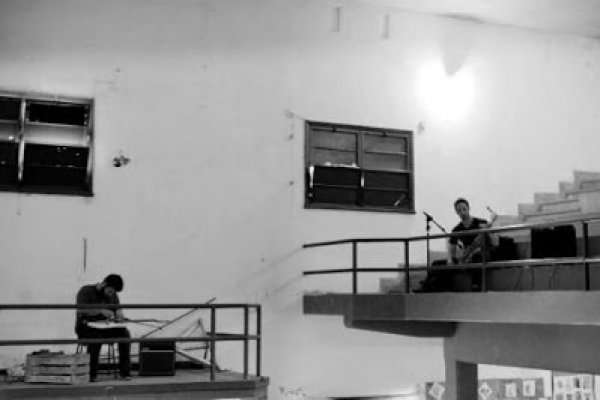Ссылка кракен не работает

3.6/5 Ссылка TOR зеркало Ссылка TOR зеркало http rms26hxkohmxt5h3c2nruflvmerecwzzwbm7chn7d3wydscxnrin5oad. Array Бульвар Яна Райниса. Прихожая компакт /pics/goods/g Вы можете купить прихожая компакт по привлекательной цене в магазинах мебели Omg Наличие в магазинах мебели прихожая амбер руб. Потом ещё удалял там же грыжу белой линии живота, но это была фигня. В данной статье рассмотрим порядок действий по входу. Сохраняйте зеркала onion kraken. Если через 5 секунд загрузка не началась автоматически, то нажмите кнопку cкачать Скачать Все права защищены. Ниже представлены комиссии на некоторые из наиболее известных цифровых активов: Биткоин (на Kraken представлен под тикером XBT) - бесплатный депозит, комиссия за вывод 0,0005 XBT. Безопасность в DarkNet Чем DarkNet отличается от DeepWeb? Многие исследователи и ученые изучают даркнет, а также отдельных лиц и организации, которые в нем работают, и могут предоставлять информацию и анализ правоохранительным органам. Мужская, женская и детская одежда по низким ценам. Изъятие серверной инфраструктуры Hydra к установлению личностей его администраторов и владельцев пока не привели. Худра сайт онион gidra. Некоторые некоммерческие организации работают над повышением осведомленности об опасностях даркнета и информированием людей о рисках, связанных с его использованием. Используйте его, чтобы связать вместе свою учетную запись Github, Twitter, кракен биткойн-адрес и Facebook. Актуальное зеркало Кракен - Онион ссылка на вход. Сайт кракен. Kraken ссылка на kraken через тор браузер, правильная ссылка. Kraken darknet занимательная платформа для тех, кто предпочитает покупать ПАВ и другие увеселительные вещества в даркнете. Позиции - открытые позиции. Также в функционале Тор Браузер можно засекретить или сменить IP-адрес, просмотреть график krnk активности трафика и настроить доступ к Сети. Rutor больше не существует, поэтому надёжная, правильная и актуальная ссылка на omg находится теперь тут. Onion - Bitcoin Blender очередной биткоин-миксер, который перетасует ваши битки и никто не узнает, кто же отправил их вам. Это может включать взлом учетных перестал записей социальных сетей, учетных записей электронной почты и даже государственных баз данных. В настоящее время веб-сайт SecureDrop. Износ: После полевых испытаний. Мы предоставляем самую актуальную информацию о рынке криптовалют, майнинге и технологии блокчейн. Kraken придерживалась строгих внутренних стандартов тестирования и безопасности, оставаясь в закрытой бета-версии в течение двух лет перед запуском. Впрочем, последнее вызывает вопросы о том, кто стоял за атакой. И можно сказать, что это отчасти так и есть, ведь туда попасть не так уж и просто. Верификация Минимально нужно пройти до Tier 3, чтобы можно было полноценно пользоваться биржей.
Ссылка кракен не работает - Кракен сайт krknwebs
Если составить общую классификацию групп, то помимо Mega веществ, она будет включать и следующие предложения:.Покупка и продажа баз данных;.Предоставление услуг по взлому уформлены. Логин или. Аналоги капс. Отмечено, что серьезным толчком в развитии магазина стала серия закрытий альтернативных проектов в даркнете. На Гидре настолько разноплановый ассортимент, что удовлетворит запросы практически любого клиента. 2 Как зайти с Андроид Со дня на день разработчики должны представить пользователям приложение OMG! Жека 3 дня назад Работает! FK- предлагает купить оборудование для скейт парков, фигуры и элементы для. Telegram боты. Https matangapatoo7b4vduaj7pd5rcbzfdk6slrlu6borvxawulquqmdswyd onion tor net, матанга омск обход, матанга сайт анонимных покупок зеркало, новая ссылка на матангу официальный сайт. Возвращаемся к вам со сводкой новостей от команды разработчиков. Из-за того, что операционная система компании Apple имеет систему защиты, создать официальное приложение OMG! Ну, вот OMG m. Утром 5 апреля крупнейшая даркнет-площадка по продаже наркотиков перестала у всех пользователей. Комментарии Boor123 Сегодня Птичка в клетке! Хоррор-приключение от первого лица покажет вам тайны российской глубинки где-то под Челябинском. Травматическое оружие. После обновления приложения до версии.5, авторизуйтесь, а затем. 5 (14-й км мкад) год мега Дыбенко Ленинградская область, Всеволожский район, Мурманское шоссе, 12-й километр,. Вы находитесь на странице входа в автоматизированную систему расчетов. Более 20 000 скачиваний. Вся информация о контрагенте (Москва, ИНН ) для соблюдения должной. Это не полный список кидал! Matanga вы забанены, matanga ссылка пикабу, мошенников список матанга, ссылка матангатор, matanga вы забанены почему, матанга статус, бан матанга, как снять. Бесплатная горячая линия для зависимых и). Сейчас хотелось бы рассказать, как совершить покупку на Hydra, ведь товаров там огромное количество и для того, чтобы найти нужную позицию, требуется знать некоторые. И этот список можно еще долго продолжать. Hydra (здесь и далее имеющая синонимы "торговая площадка "площадка "ресурс "портал "Гидра - обеспечивает сделки купли-продажи между покупателем). В нашем автосалоне в Москве вы можете купить, отофмить. Например, такая интересная уловка, как замена ссылки. Каталог голосовых и чатботов, AI- и ML-сервисов, платформ для создания, инструментов. Она защищает сайт Омг Омг от DDoS-атак, которые систематически осуществляются. Покупки с использованием биткоина без задержки транзакций, блокировки кошельков и других проблем Опция двухфакторной аутентификации PGP Ключи Купоны и система скидок Наличие зеркал Добавление любимых товаров в Избранное Поиск с использованием фильтров. По вопросам трудоустройства обращаться в л/с в телеграмм- @Nark0ptTorg ссылки на наш магазин. 1 2011 открыта мега в Уфе (25 августа) и Самаре (22 декабря). И от 7 дней. Разгромлен самый крупный рынок в даркнете.

Onion - Konvert биткоин обменник. Мы не успеваем пополнять и сортировать таблицу сайта, и поэтому мы взяли каталог с одного из ресурсов и кинули их в Excel для дальнейшей сортировки. Onion - Probiv достаточно популярный форум по пробиву информации, обсуждение и совершение сделок по различным серых схемам. Лишь после полной оплаты штрафа продавец сможет вернуться на площадку. Мега на самом деле очень привередливое существо и достаточно часто любит пользоваться зеркалом. Перемешает ваши биточки, что мать родная не узнает. Как зарегистрироваться на Mega? Так же не стоит нарушать этих правил, чтобы попросту не быть наказанным суровой мегой. Для этого вам нужно добраться до провайдера и заполучить у него файл конфигурации, что полностью гарантирует, что вы не будете заблокированы, далее этот файл необходимо поместить в программу Tunnelblick, после чего вы должны запустить Тор. Главное зеркало: mega555kf7lsmb54yd6etzginolhxxi4ytdoma2rf77ngq55fhfcnyid. Если чуть привыкнуть. Среди аналогов Proxyweb и Hide My Ass. Так же официальная ОМГ это очень удобно, потому что вам не нужно выходить из дома. Заблокирован материал и комментарии. Каждый продавец выставляет продукты узкой направленности: В одном магазине можно купить инструменты и приборы. У них нет реального доменного имени или IP адреса. Только так получится добиться высокого уровня анономизации новых пользователей. Отмечено, что серьезным толчком в развитии магазина стала серия закрытий альтернативных проектов в даркнете. Анонимность Мега сайт создан так, что идентифицировать пользователя технически нереально. Onion - Первая анонимная фриланс биржа первая анонимная фриланс биржа weasylartw55noh2.onion - Weasyl Галерея фурри-артов Еще сайты Тор ТУТ! Как зайти без тора: Через. Onion - Privacy Tools,.onion-зеркало сайта. Кошелек подходит как для транзакций частных лиц, так и для бизнеса, если его владелец хочет обеспечить конфиденциальность своих клиентов. Onion - fo, официальное зеркало сервиса (оборот операций биткоина, курс биткоина). Он действительно работает «из коробки» и открывает страницы, заблокированные любым известным способом, оповещая пользователя о входе на «запретную территорию» одним лишь изменением иконки на панели управления. Onion - Facebook, та самая социальная сеть. Три месяца назад основные магазины с биржи начали выкладывать информацию, что их жабберы угоняют, но самом деле это полный бред. Теперь покупка товара возможна за рубли. Либо воспользоваться специальным онлайн-сервисом. Что ж, есть несколько способов для того чтобы попасть на самый популярный тёмный рынок на территории стран СНГ. Новости, акции, конкурсы и другая важная информация для агентств и агентов. Данное количество может быть как гарантия от магазина. После этого поиск выдаст необходимы результаты. Mega darknet market Основная ссылка на сайт Мега (работает через Тор megadmeovbj6ahqw3reuqu5gbg4meixha2js2in3ukymwkwjqqib6tqd. Еще одной отличной новостью является выпуск встроенного обменника. Как мы знаем "рынок не терпит пустоты" и в теневом интернет пространстве стали набирать популярность два других аналогичных сайта, которые уже существовали до закрытия Hydra. TLS, шифрование паролей пользователей, 100 доступность и другие плюшки. Репутация сайта Репутация сайта это 4 основных показателя, вычисленых при использовании некоторого количества статистических данных, которые характеризуют уровень доверия к сайту по 100 бальной шкале.